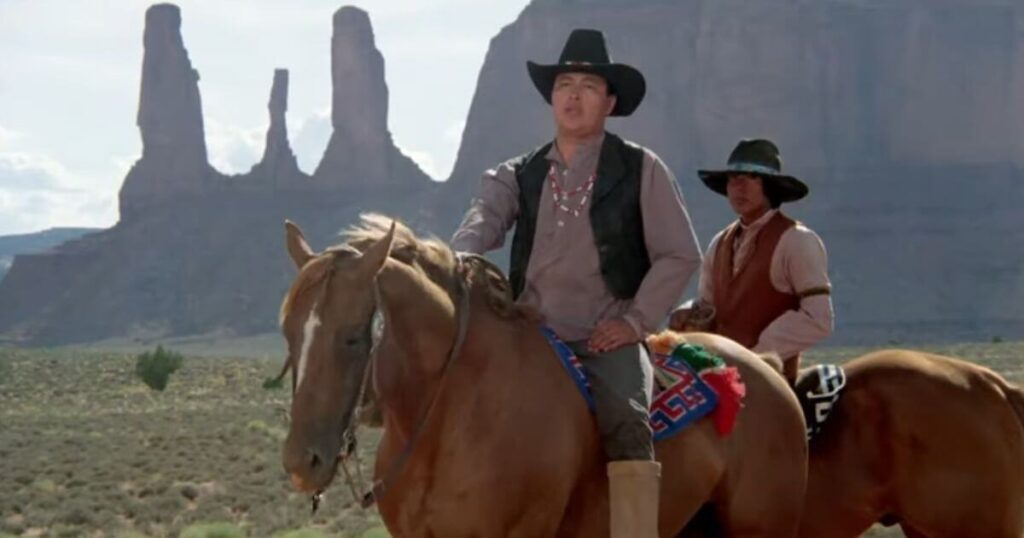Inside the Griswold Family Vacation: A Detailed Journey Through Their Iconic Adventure
Few fictional families have captured the chaos of vacations like the Griswold family vacation. With their wild adventures and constant mishaps, what would a couple’s getaway be without JOURNEY? Now, you hop into the family van with Clark Griswold and his clan, who became a cultural landmark for any breed of person who has made a family pilgrimage.
From “National Lampoon’s Vacation” to “Christmas Vacation,” the Griswolds’ hijinks are as iconic as they are relatable. Let’s delve into their epic road trips, the cultural and comedic themes at play, and the more profound significance of their story.
The Griswold Family’s Journey
The great big road trip to “Walley World,” America’s No. A fictional family amusement park serves as the central focus of the Griswold family’s adventures. Ward and Ellen’s overzealous patriarch, Clark Griswold, is on a quest to provide a perfect vacation for his wife, Ellen, and two children, Rusty and Audrey in the griswold family vacation..
What begins as an innocuous road trip devolves into a string of misadventures, including money issues, car breakdowns, and memorable stops at eccentric locations.
Among their infamous stops are St. Louis, where they come up against a car robbery, and Dodge City, where they try to live it up like old-timey folk until they suffer some ill-fated saloon drama.) When they finally arrive at Walley World, beat to hell and pocketless, the cherry on their frustration sundae is that the park is shut down.
But Clark’s boundless optimism (surely bordering on lunacy) inspires him to hijack the park anyway, earning the sympathy of the park’s owner and securing their vacation as a memorable adventure.
DOE- Economic and Statistical Analysis
Ironically, the Griswold family’s money problems are one way they align with real-life families. The Bureau of Labor Statistics found that in 2017, the average American family spent $2,076 a year on vacations.
For the Griswolds, the choice to drive cross-country, as opposed to fly, makes sense within this reality — airfare was just not in the cards for them. The infamous “Antarctic Blue Sports Wagon” that Clark buys (against his will) also highlights the financial concessions that families commonly make.
Gas costs are also a heavy consideration for their trip. The 2017 data suggests households spent an average of around $109 on fuel for out-of-town trips, although Clark’s off-book detours certainly ran up the tab higher.
It even embraces labor statistics — employment conditions in places like St. Louis and Colorado — and embeds them in the fictional milieu in a clever and funny way.
Themes and Motifs
At the heart of the Griswold saga is nostalgia. Clark’s quest to recreate the perfect family vacation is motivated by a desire to give his family the experiences he believes they should have and he wants them to have. Yet his unyielding pursuit of perfection reveals often the distance between expectation and reality.
Another dominant theme is chaos versus order. The Griswold family’s holiday vacations show that even the most perfect plans fall apart against unexpected challenges. From misplaced luggage to handling breakdowns and fights, their road trip is full of raw, unfiltered moments that viewers will find both laugh-out-loud funny and painfully relatable.
Cultural Impact and Legacy

Since the release of “National Lampoon’s Vacation” in 1983, the film has become a touchstone for family comedies — even establishing the “disaster vacation” as its own subgenre. The Griswolds’ travails — though they have been magnified for comic effect — are relatable: Travel delays, personality clashes, picture-perfect plans that don’t work out.
Movies like “Christmas Vacation” push these themes further, setting the Griswolds at the holidays and adding the element of chaos to the stress of hosting family events.
This installment, in particular, has come to define the season, endlessly quoted and laced with nostalgia and laughter as viewers gear themselves up for their own imperfect holidays.
Character Analysis
Every Griswold movie still has at least one heart shaped like Clark Griswold. Portrayed by Chevy Chase, Clark is the classic “lovable fool.” He represents resilience and stubborn determination; even while around him, everything crumbles.
Much of what he says is designed to make everyone crack up, but his desire to create happy memories for his family often translates into elaborate efforts, be it covering the house in a ridiculous number of Christmas lights or commandeering a parking lot shuttle.
What is Beverly D’Angelo’s Ellen Griswold doing? What is Beverly D’Angelo’s Ellen Griswold doing? Beverly D’Angelo’s Ellen Griswold is the grounded force among the chaos.
Often the voice of reason, she balances the harebrained schemes of her partner Clark while striving to keep the peace. The Griswold children, Rusty and Audrey, are represented by their constantly changing faces (they are recast with almost every movie) and by their hilariously eye-rolling response to their parents’ shenanigans.
Together, they form a dysfunctional but loving family that audience members can’t resist rooting for.
Behind the Scenes

The Griswold films wouldn’t be half as beloved without the creativity behind the camera. Written by John Hughes, one of the most successful comedic filmmakers of his time, and directed by Harold Ramis, “National Lampoon’s Vacation” became the touchstone for a certain kind of humor with its biting wit and unforgettable set pieces.
The production faced its challenges, including the struggle to recreate an imaginary Walley World amusement park, which required shooting at Six Flags Magic Mountain in California.
Chevy Chase’s improvisation throughout the series gave Clark extra depth and warmth; Hughes’ screenplays balanced the laugh-out-loud with an undercurrent of emotion.
Hearing cast members and crew tell their real-life stories—like the difficulties of shooting with live animals or surviving extreme heat while shooting road scenes—gives fans even more reasons to love the movies.
Comparative Analysis
The Griswolds aren’t the only fictional family to experience vacation carnage. Movies such as “RV” and “We’re the Millers” approach similar subject matter of misadventure and family.
dynamics. But the Griswolds are relatable, which is their charm. Unlike many overblown, absurdist comedies, the Griswold vacation is grounded in real-life annoyance, whether being stuck on the side of a freeway or sitting through awkward family obligations.
What makes the Griswolds different is that combination of heart and absurdity. As we smile at their tribulations, we also glimpse flashes of recognition in their attempts to bond as a family through the silliness.
Conclusion
The Griswold family vacations epitomize what imperfect vacations are all about — rarely do things go as planned. Still, there are plenty of moments to remember. Whether it’s Clark’s hapless enthusiasm-am or Ellen’s indefatigable forbearance, the Griswolds teach us that laughter and love count more than perfection. The series is as much a tribute to the family as it is a comedy about the trials of adventure.
Through their adventures, misfortunes, financial struggles, and grounded relationships, the Griswold are still relatable to audiences as a source of humor and a mirror image of ourselves. Because their family might be dysfunctional, but aren’t they like ours?

2 thoughts on “Inside the Griswold Family Vacation: A Detailed Journey Through Their Iconic Adventure”